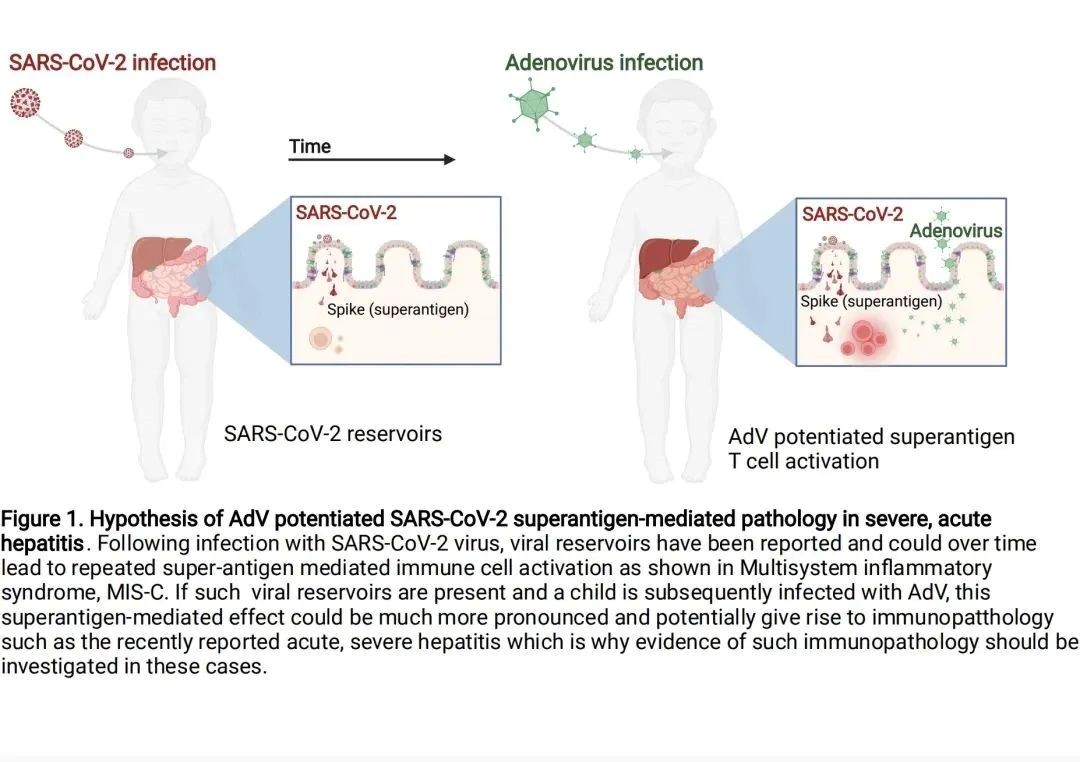What caused more than 300 cases of acute hepatitis of unknown etiology in more than 20 countries and regions around the world? The latest research shows that it may be related to the super antigen caused by the new coronavirus. The above findings were published in the international authoritative academic journal “The Lancet Gastroenterology & Hepatology”.
The aforementioned studies have shown that children infected with the new coronavirus can lead to the formation of virus reservoirs in the body. Specifically, the persistent presence of new coronavirus in the gastrointestinal tract of children can lead to the repeated release of viral proteins in intestinal epithelial cells, resulting in immune activation. This repeated immune activation may be mediated by a super antigen motif in the spike protein of new coronavirus, which is similar to staphylococcal enterotoxin B and triggers broad and nonspecific T cell activation. This super antigen-mediated activation of immune cells has been implicated in the multisystem inflammatory syndrome in children (MIS-C).
The so-called super antigen (SAg) is a kind of substance that can activate a large number of T cell clones and generate a strong immune response with only a very low concentration (≤10-9 M). Multisystem inflammatory syndrome in children began to receive widespread attention as early as April 2020. At that time, the world had just entered the new crown pandemic, and many countries successively reported a “children’s strange disease”, which was highly related to the new crown virus infection. Most patients experience symptoms such as fever, rash, vomiting, swollen neck lymph nodes, chapped lips, and diarrhea, similar to those of Kawasaki disease, also known as Kawasaki-like disease. Multisystem inflammatory syndrome in children mostly occurs 2-6 weeks after new crown infection, and the age of onset children is concentrated between 3-10 years old. Multisystem inflammatory syndrome in children is different from Kawasaki disease, and the disease is more severe in children who are serosurveilled positive for COVID-19.
The researchers analyzed that the recent acute hepatitis of unknown cause in children may have been infected with the new coronavirus first, and the children were infected with adenovirus after the virus reservoir appeared in the intestine.
The researchers report a similar situation in mouse experiments: Adenovirus infection triggers staphylococcal enterotoxin B-mediated toxic shock, leading to liver failure and death in mice. Based on the current situation, ongoing COVID-19 surveillance is recommended in the stool of children with acute hepatitis. If evidence of SARS-CoV-2 superantigen-mediated immune activation is found, immunomodulatory therapy should be considered in children with severe acute hepatitis.
Post time: May-21-2022


